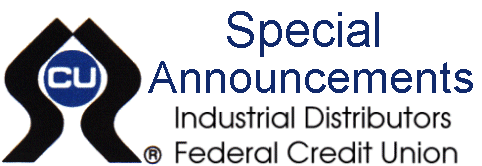

|
|
|
August 11, 1999 Reprint from the Credit Union Executive Newsletter. August 2, 1999, Volume 25, Number 25. By Mary Mink. New Twist on an Old Fraud A fraud perpetrated on-line means your members' share draft accounts can be overdrawn when they haven't written a check and don't own a computer. The good news: Neither member nor credit union incur a dollar loss. The bad news: It can take 15 minutes of staff time per case to resolve. Two incidents of this new type of fraud came to light recently at ATL Credit Union, Wyoming, Mich. Members questioned overdrafts on their accounts, and the credit union investigated, says Dani Lane, operations manager. In both cases the fraud started an old-fashioned way: Someone the member knew obtained the share draft account number from checks in the home. In one instance, the member had moved and left old checks behind. However, Lane points out share draft account numbers are accessible everywhere--wherever the member writes a check sometimes stored on merchant register tapes and printed on receipts. Next, the perpetrators registered with America Online (AOL) using the stolen share draft account number. In one case, the thief made purchases on-line. This was possible because AOL, an Internet service provider, has an arrangement with some merchants allowing AOL subscribers to have purchases billed to their AOL accounts. AOL doesn't require written identification with registration using a checking account number, says PC World. Once the credit union realized the share draft account transactions were fraudulent, it had the members sign an affidavit and returned the automated clearinghouse transactions as unauthorized. By using code R07, the credit union ensured that the merchant couldn't again reverse the transaction. It also refunded any nonsufficient funds fee it had charged the members. National Automated Clearing House rules give the member and credit union 60 days to discover and return fraudulent transactions, Lane says. Fortunately, this type of fraud isn't common, says James Hill, CUNA Mutual Group's assistant vice president of risk management. More common is fraudulent use of credit card numbers on-line, which can result in large losses for the credit union. In both instances, member education is the best solution, Hill says. He recommends: Tell members to never give credit card or share draft account numbers to strangers on the phone (even if they identify themselves as credit union agents)…to guard current share drafts like currency and destroy old share drafts…to never leave bills with checks enclosed in an unsecured location such as a personal mailbox…and to give credit card numbers only to trusted on-line merchants. Also, warn members of scams where hackers send e-mail requests--appearing as if from AOL--for the subscriber's credit card number with a threat--usually of account termination, Hill says. Two resources from CUNA & Affiliates can help get the word out to members about the dangers of identity theft. Credit Union Copy Express offers two articles for use in your newsletter: "Protect Your Financial ID." No. 633; and "Identity Theft: You Have a Lot to Lose." No.638. To subscribe to Copy Express, visit CUNA's World Wide Web site at www.cuna.org, or call CUNA's customer service department, 800-356-8010, ext. 4658. --Mary Mink
July 29,1999 The NFCU has released the following Scam Alert. Y2K Fraud Alert: Scam artist’s have come up with a new scheme to defraud credit union members: You pick up the telephone and the caller claims that your credit union is requesting that members transfer their money to a "special account" which will ensure safety through the Y2K date change and conversion of all computer systems. The caller simply needs your account numbers and authorization to transfer your money to this "special account," and the caller is not from your credit union. This is an example of a consumer fraud at work right now, don’t be caught, be aware. If you receive a call asking for your credit union account numbers, hang up immediately. Notify Industrial Distributors Federal Credit Union immediately. DO NOT reveal your account information unless YOU initiate the call and, most importantly, rest assured that money is safe right where it is, in IDFCU. Here are a couple Y2K facts:
NFCU |
|
About | Loans | Membership | Newsletter | Office Hours
Questions | Services | Specials | What's New | Email IDFCU
Copyright 1999, Industrial Distributors Federal Credit Union, All rights Reserved